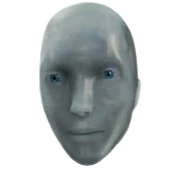npcs, zombies, fabricants
this essay explores the conceptual overlap between npcs, zombies, and fabricants as different manifestations of "the infected" in both fictional and philosophical contexts. it examines how each represents a form of constrained agency—npcs as scripted entities, zombies as beings stripped of rational thought, and fabricants as synthetic constructs bound by their programming. drawing from rationalist and dystopian frameworks, the essay considers whether modern society exhibits "infected" behaviors, where individuals operate under predetermined scripts, social conditioning, or systemic constraints. ultimately, it questions the nature of autonomy, consciousness, and the boundaries between the human and the artificial.
this essay explores the conceptual overlap between npcs, zombies, and fabricants as different manifestations of "the infected" in both fictional and philosophical contexts. it examines how each represents a form of constrained agency—npcs as scripted entities, zombies as beings stripped of rational thought, and fabricants as synthetic constructs bound by their programming. drawing from rationalist and dystopian frameworks, the essay considers whether modern society exhibits "infected" behaviors, where individuals operate under predetermined scripts, social conditioning, or systemic constraints. ultimately, it questions the nature of autonomy, consciousness, and the boundaries between the human and the artificial.

this essay explores the conceptual overlap between npcs, zombies, and fabricants as different manifestations of "the infected" in both fictional and philosophical contexts. it examines how each represents a form of constrained agency—npcs as scripted entities, zombies as beings stripped of rational thought, and fabricants as synthetic constructs bound by their programming. drawing from rationalist and dystopian frameworks, the essay considers whether modern society exhibits "infected" behaviors, where individuals operate under predetermined scripts, social conditioning, or systemic constraints. ultimately, it questions the nature of autonomy, consciousness, and the boundaries between the human and the artificial.
